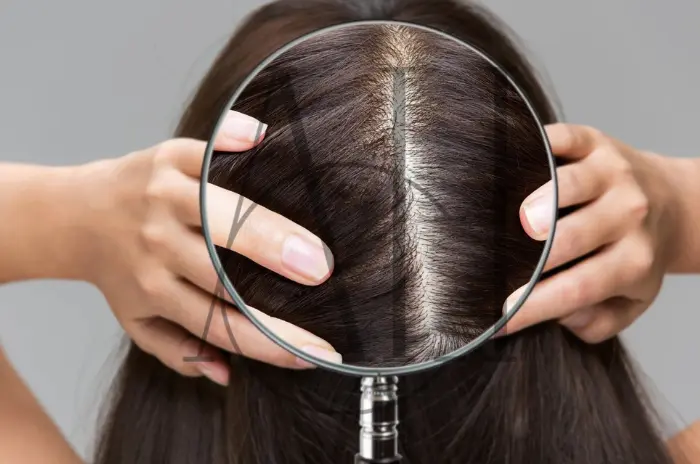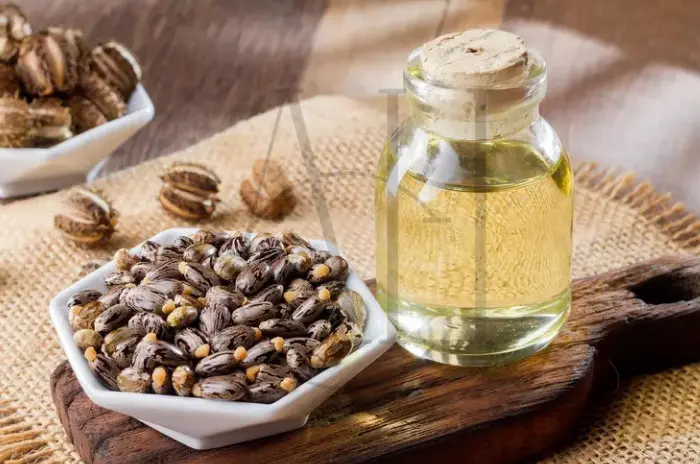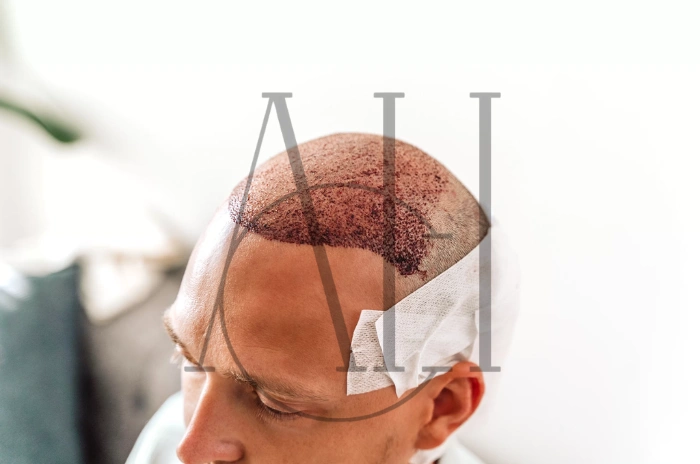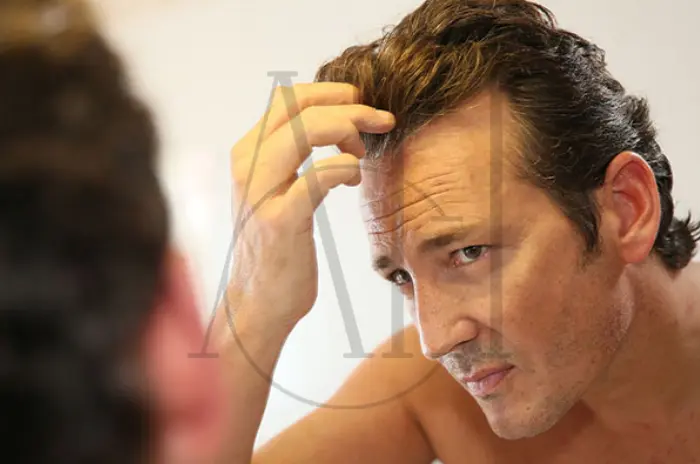The microbiome plays a crucial role in hair physiology by influencing the health of the scalp and hair follicles. It consists of a diverse community of microorganisms, including bacteria, fungi, and viruses, which live on the scalp and interact with the hair follicles. A balanced scalp microbiome supports healthy hair growth by maintaining the scalp’s natural barrier, regulating oil production, and preventing harmful pathogens. However, an imbalance in the microbiome can lead to various hair problems, such as thinning, dandruff, and scalp irritation. Understanding the microbiome’s impact on hair physiology is essential for developing effective treatments to promote healthy hair growth and address scalp-related issues.
Table of Contents
ToggleUnderstanding the Hair Follicle and Its Microbiome
The hair follicle is a complex structure that plays a crucial role in hair growth and regeneration. It is composed of various layers, including the outer root sheath, inner root sheath, and the hair matrix. The follicle is constantly influenced by both genetic and environmental factors, including the microbiome.
The microbiome refers to the community of microorganisms—such as bacteria, fungi, viruses, and other microbes—that live on and within our body. These microorganisms are crucial for maintaining the health of the skin and scalp. The hair follicle microbiome, specifically, plays a role in regulating hair growth, follicle function, and even hair regeneration. Recent studies suggest that an imbalance in the scalp microbiome can contribute to various hair issues such as hair thinning, dandruff, and even hair loss.
A healthy scalp microbiome fosters a balanced ecosystem where beneficial microorganisms keep harmful bacteria or fungi at bay. Understanding the relationship between the hair follicle and its microbiome is crucial for developing new approaches to promoting hair health and addressing conditions like hair loss.
What Is the Microbiome and How Does It Affect Hair?
The microbiome is a diverse collection of microorganisms that naturally reside in and on the human body, with the scalp being one of the most populated areas. These microorganisms include beneficial bacteria, fungi, and other microbes that help maintain the skin’s natural barrier, prevent infections, and support immune functions.
In the context of hair health, the scalp microbiome has a significant impact on hair growth and regeneration. The scalp provides an environment that supports both good and bad microorganisms, but when this balance is disrupted, it can lead to inflammation, irritation, and various scalp issues that interfere with hair growth.
-
Beneficial microorganisms: These microbes help maintain the scalp’s pH balance, promote healthy follicle function, and protect the scalp from harmful pathogens.
-
Harmful microorganisms: When an imbalance occurs, harmful microbes, such as certain bacteria and fungi, can proliferate and lead to scalp issues, including dandruff, seborrheic dermatitis, and hair thinning.
Thus, the health of the microbiome directly affects the overall health of the hair follicles, influencing the growth cycle and the quality of hair produced.
The Link Between Microbiome Imbalance and Hair Problems
An imbalance in the scalp’s microbiome—often referred to as dysbiosis—can lead to various hair and scalp conditions. This imbalance may be caused by several factors, including poor diet, stress, hormonal fluctuations, environmental toxins, or the overuse of harsh hair care products. Here are some of the common hair problems linked to an unhealthy scalp microbiome:
1. Hair Thinning and Hair Loss
When the balance of the scalp microbiome is disrupted, it can lead to inflammation that affects the hair follicles. Chronic inflammation is known to damage the hair follicles, impairing their ability to produce healthy hair. In some cases, this can even trigger hair loss conditions like telogen effluvium (temporary hair loss) or androgenetic alopecia (pattern baldness).
2. Dandruff and Dry Scalp
Dandruff is often caused by an overgrowth of the fungus Malassezia, which thrives in an imbalanced scalp environment. This fungus feeds on the oils in your scalp, leading to irritation, dryness, and flakiness. A disrupted microbiome may exacerbate dandruff by allowing Malassezia to proliferate unchecked.
3. Scalp Inflammation and Irritation
An imbalanced microbiome can lead to scalp conditions such as seborrheic dermatitis, where inflammation and irritation disrupt the normal hair growth cycle. This condition can cause itching, redness, and discomfort, making it difficult for hair to grow.
4. Increased Oil Production
Excess oil production, often linked to an unhealthy scalp microbiome, can clog hair follicles and hinder the natural hair growth process. This overproduction of sebum can lead to greasy hair, clogged pores, and potential hair thinning.
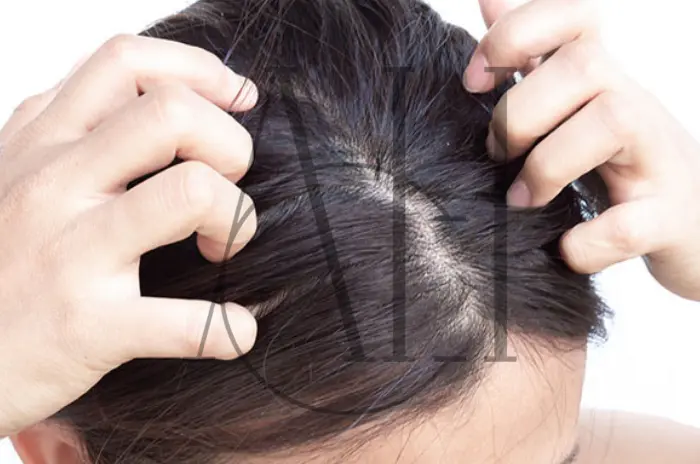
Can Probiotics Improve Hair Growth?
Probiotics, the “good” bacteria, have long been associated with gut health, but emerging research suggests they may also play a role in improving scalp health and supporting hair growth. The application of probiotics to the scalp may help restore a healthy balance of microorganisms, thereby promoting a favorable environment for hair follicles.
How Probiotics Can Help
Probiotics can support a balanced microbiome by:
-
Reducing inflammation: Probiotics help regulate immune function, reducing the inflammation that can impair hair follicle function.
-
Balancing oil production: Probiotics may help maintain a healthy scalp by preventing excessive oil production and promoting a balanced environment.
-
Fighting harmful bacteria: By boosting the number of beneficial bacteria, probiotics help keep harmful microorganisms, such as fungi and bacteria, in check.
Probiotic-rich products, such as scalp serums or shampoos, can be used to help restore microbiome balance and encourage hair growth. Moreover, oral probiotics, like those found in fermented foods or supplements, may help reduce scalp inflammation and improve overall skin health.
How to Balance Your Scalp Microbiome for Better Hair
Maintaining a healthy scalp microbiome is essential for optimal hair growth. Here are some effective ways to balance your scalp’s microbiome:
1. Use Mild, Sulfate-Free Shampoos
Harsh chemicals, such as sulfates, can strip the scalp of natural oils and disrupt the microbiome. Opt for sulfate-free shampoos that cleanse the scalp gently without drying it out.
2. Incorporate Probiotics into Your Routine
Consider using probiotic-enriched shampoos, conditioners, or scalp treatments. You can also take oral probiotic supplements or consume fermented foods like yogurt, kimchi, or sauerkraut to support a healthy scalp microbiome.
3. Avoid Overuse of Hair Products
Overloading your hair with styling products or chemicals can disrupt the balance of your scalp’s microbiome. Stick to a minimal hair care routine with nourishing products suited to your scalp and hair type.
4. Massage Your Scalp Regularly
Scalp massage helps improve blood circulation and supports the health of the hair follicles. It also helps to distribute natural oils across the scalp, promoting a balanced microbiome environment.
5. Maintain a Healthy Diet
A balanced diet rich in nutrients like vitamins A, C, and E, as well as omega-3 fatty acids, can help support scalp health. These nutrients promote a healthy microbiome and prevent inflammation.
Microbiome Impact on Hair Physiology and Regeneration
The microbiome plays a significant role in the physiology of hair growth and regeneration. When the scalp microbiome is balanced, it creates an optimal environment for hair follicles to thrive. This balance supports the healthy function of hair follicles, encouraging hair growth and preventing premature hair loss.
Hair Follicle Cycle
A healthy scalp microbiome allows hair follicles to complete their growth cycle (anagen phase) without interruption. Disruptions in the microbiome can shift hair follicles into the shedding phase (telogen), which leads to increased hair loss.
Hair Regeneration
Restoring balance to the scalp microbiome may help promote the regeneration of hair follicles. By addressing inflammation, improving circulation, and supporting follicle health, a balanced microbiome can foster new hair growth.
FAQ
Does scalp microbiome affect hair growth?
Yes, the scalp microbiome directly affects hair growth. A balanced microbiome supports healthy follicles and regulates inflammation, which is crucial for promoting hair growth. An imbalanced microbiome can lead to scalp irritation, clogged pores, and hair loss.
How can I improve my scalp microbiome?
To improve your scalp microbiome, use gentle, sulfate-free hair care products, incorporate probiotics into your routine, avoid over-styling, and maintain a balanced diet. Regular scalp massages can also help promote a healthy environment for hair follicles.
Can probiotics help with hair growth?
Yes, probiotics can help balance the scalp microbiome, reduce inflammation, and improve scalp health. These benefits can promote hair growth by creating a favorable environment for hair follicles.
What are the signs of an unhealthy scalp?
Signs of an unhealthy scalp include dryness, excessive oil production, flakiness (dandruff), redness, itching, or inflammation. These issues often point to an imbalance in the scalp microbiome, which can interfere with hair growth.

